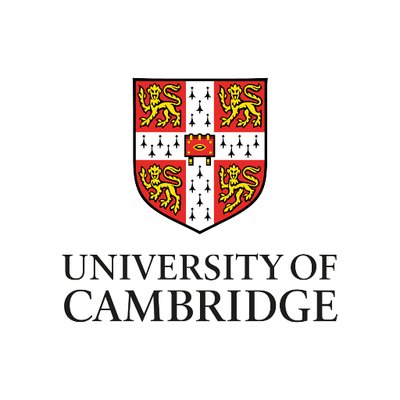University of Cambridge: Cambridge’s world-leading research
93% of Cambridge’s overall submissions rated as world-leading or internationally-excellent
Times Higher Education rankings show Cambridge is the leading university that covers the broad range of disciplines from STEM to the arts, humanities and social sciences
Our submissions within STEM subjects were all rated over 90% world-leading or internationally-excellent
This was our most inclusive REF to date: we returned 2,982 academic and research staff, including a significant number of early career researchers and, for the first time, researchers within our museums and libraries
A revolutionary new drug that has transformed the lives of cancer patients. Iris recognition technology that has enabled refugees to receive aid more quickly. The book that has helped millions of children and adults reconnect with nature.
Cambridge research is helping change the world.
Today, the University of Cambridge’s position as a world-leading institution has been recognised with the publication of the results from the latest Research Excellence Framework (REF). 93% of Cambridge’s submissions have been rated as ‘world-leading’ or ‘internationally-excellent’.
The influential Times Higher Education rankings place Cambridge joint third, making us the leading university that covers the broad range of disciplines from STEM to the arts, humanities and social sciences.
A third of Cambridge submissions were ranked in the top three institutions in their subject areas (units of assessment), with Clinical Medicine, Earth Sciences, Architecture and Land Economy, and Business leading the field.
Professor Stephen J Toope, Vice-Chancellor of the University of Cambridge, said: “These results highlight the strength of our research environment and outputs, and the significant impact that our research has across the world.
“The results demonstrate Cambridge’s global leadership across a wide range of disciplines and are testament to the imagination, visionary thinking and hard work of Cambridge researchers, who, with their many partners around the world, are making a real difference to people’s lives.”
The REF is the system for assessing the quality of research in UK higher education institutions and is undertaken by the four UK higher education funding bodies: Research England, the Scottish Funding Council, the Higher Education Funding Council for Wales, and the Department for the Economy, Northern Ireland.
Among the data submitted by universities and other institutions are case studies that describe the impact of their research – that is, where they have made a difference to society, health, the economy, for example.
Cambridge returned some 2,982 academic and research staff to the REF, an increase of 817 compared to the previous exercise in 2014. This includes a significant number of early career researchers and, for the first time, researchers within a range of institutes including our museums and libraries.
62% of Cambridge’s overall submissions were awarded the highest rating of 4* overall, meaning they are ‘world-leading’. Our submissions within STEM subjects were all rated over 90% 4* or 3* quality.
For the purpose of Cambridge’s submission, each eligible researcher across all academic disciplines was assigned to one of 30 units of assessment (subject areas). Each unit was judged by three criteria – outputs (such as publications, performances and exhibitions), their impact, and the environment that supports research.
Professor Anne Ferguson-Smith, Pro-Vice-Chancellor for Research, said: “I would like to congratulate and thank everyone who has taken part in this year’s REF for all their hard work, which has led to this outstanding result. This is our most inclusive submission yet, and we have seen strong performances across the board, from Clinical Medicine and Earth Sciences through to Architecture, Sociology and Music.
“What we see today is not just the excellence of Cambridge research, but also the reach and significance of its impact, with researchers across many disciplines bringing a fresh perspective on how we tackle major problems facing our world today.”
The results of the REF will be used by the four UK higher education funding bodies to allocate block-grant research funding to universities. The announcement of the amount of funding each institution will receive will be made later this year.

